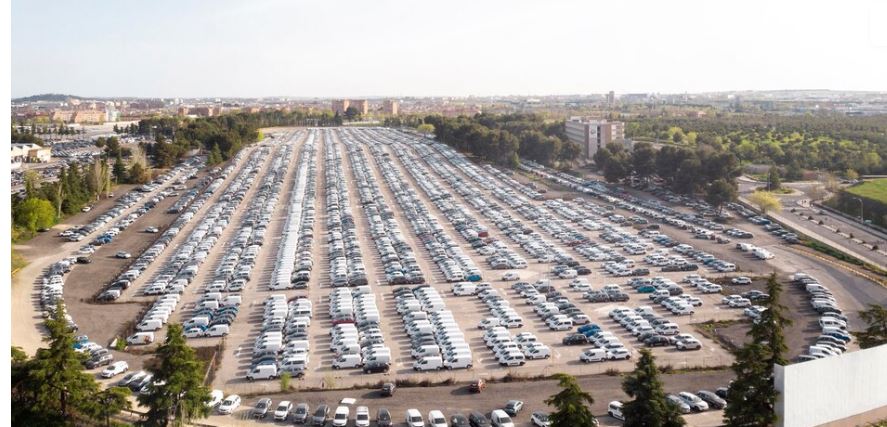
The Littlehampton Tesco parking lot has evolved into something much more than just a location to park in recent years; it is now the setting for an incredibly intricate social story. What began as a group of caravans arriving quickly became a story about public perception, community rights, and displacement. In essence, it was a collision between contemporary retail life and mobility.
More than a dozen caravans arrived on site over the course of several hours on April 9, their gleaming white exteriors glistening in the floodlights of the supermarket. They were members of a traveling group that had previously left the neighboring Rosemead Park, so these weren’t just any tourists. Almost immediately, the group resurfaced in the Tesco parking lot in Broad Piece, reestablishing themselves like a school of fish suddenly redirected by underwater currents.
| Key Details: Tesco Car Park Caravan Occupation, Littlehampton | |
|---|---|
| Location | Tesco Broad Piece, Wick, Littlehampton, West Sussex |
| Date of Arrival | April 9, 2025 |
| Number of Caravans | 19 caravans, several vans and cars |
| Previous Site | Rosemead Park, Littlehampton |
| Eviction Method | Sussex Police issued formal notice |
| Council Comment | Tesco, as landowner, responsible for legal action |
| Public Complaints | Alleged harassment, theft, disruption to business |
| Status Now | Caravans vacated; park open and clean |
The park was reportedly cleared effectively thanks to Littlehampton Town Council and Sussex Police’s prompt coordination. Since then, council representatives have attested to the area’s cleanliness, reopening to the public, and—most importantly—the installation of temporary concrete barriers to stop future occurrences of this kind. It was a response that was both widely known and remarkably successful.
Episodes like this one occur with near-mathematical predictability in the context of increasing population mobility and the limited number of authorized encampment sites. Groups that are displaced from one location frequently look for another nearby—a pattern that is both inevitable and human.
While some locals expressed their annoyance by accusing others of stealing and causing trouble, others urged a more measured approach, citing more serious issues with social inclusion and infrastructure. As one local put it so movingly: “This wasn’t just a disturbance. It reflected the blind spots in our system.
This incident was defused with a level of professionalism that stopped it from getting worse by utilizing the collaboration between law enforcement and the local government. However, there is still a persistent worry because there are no long-term fixes. Concrete barriers don’t solve problems; they just deter.
Councils and retailers may need to reconsider how they safeguard property without compromising human dignity in the years to come, as urban areas become denser and the need for flexible living spaces increases. Perhaps public policy will start to view such incidents as predictable data points that need systemic attention, rather than as anomalies, similar to how city planners are using AI-driven data models to recalibrate traffic flow.
The caravans have left Littlehampton’s Tesco parking lot, and the parking bays have returned to their grid-like quiet. However, for those who paid close attention, this short episode provided a strikingly clear glimpse of a society navigating the limits of land, law, and means of subsistence.

